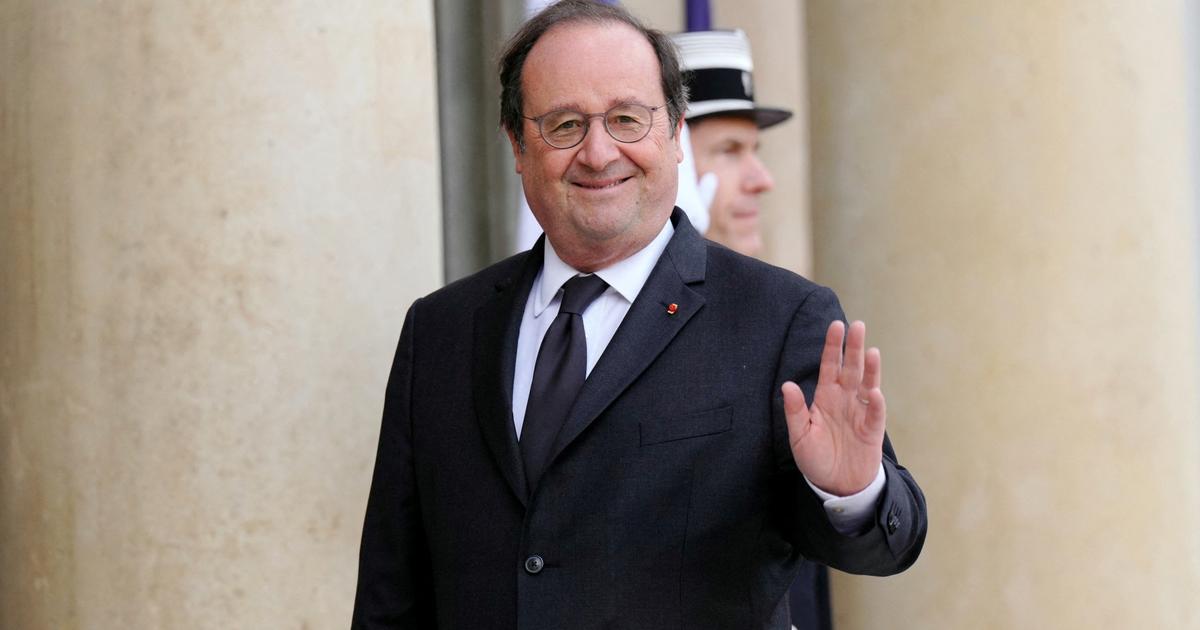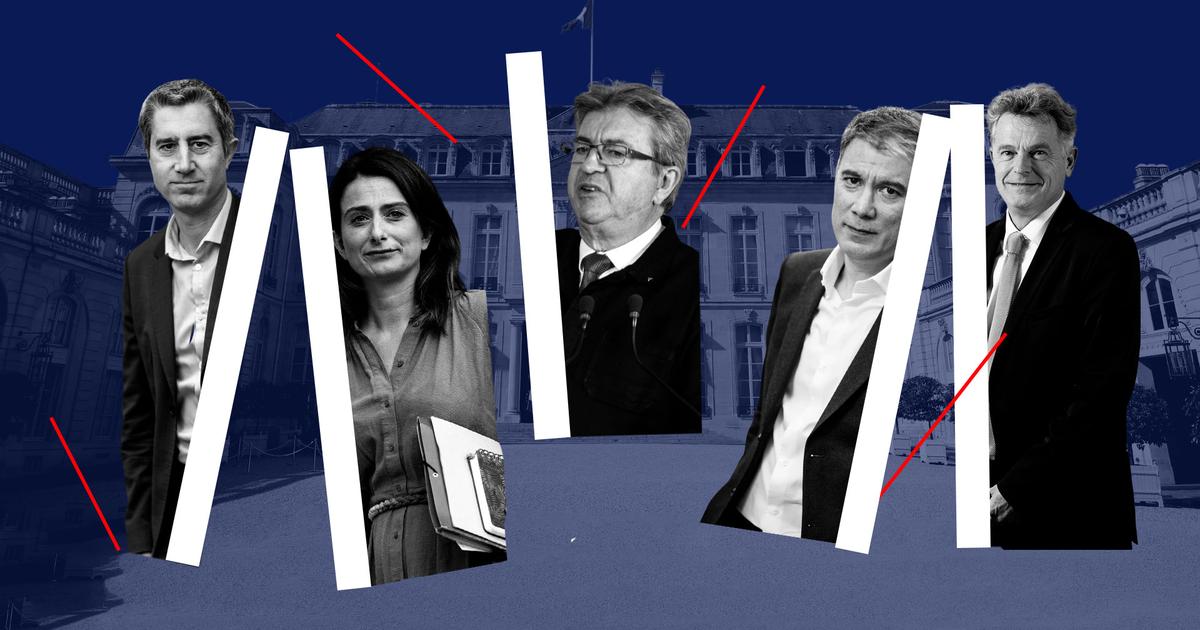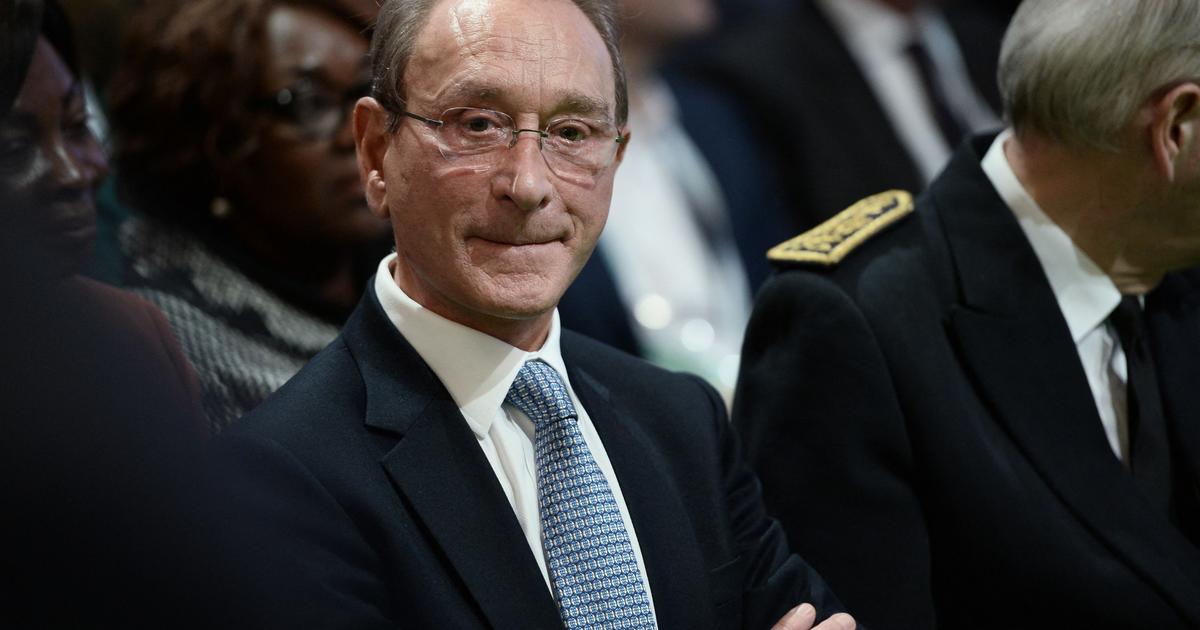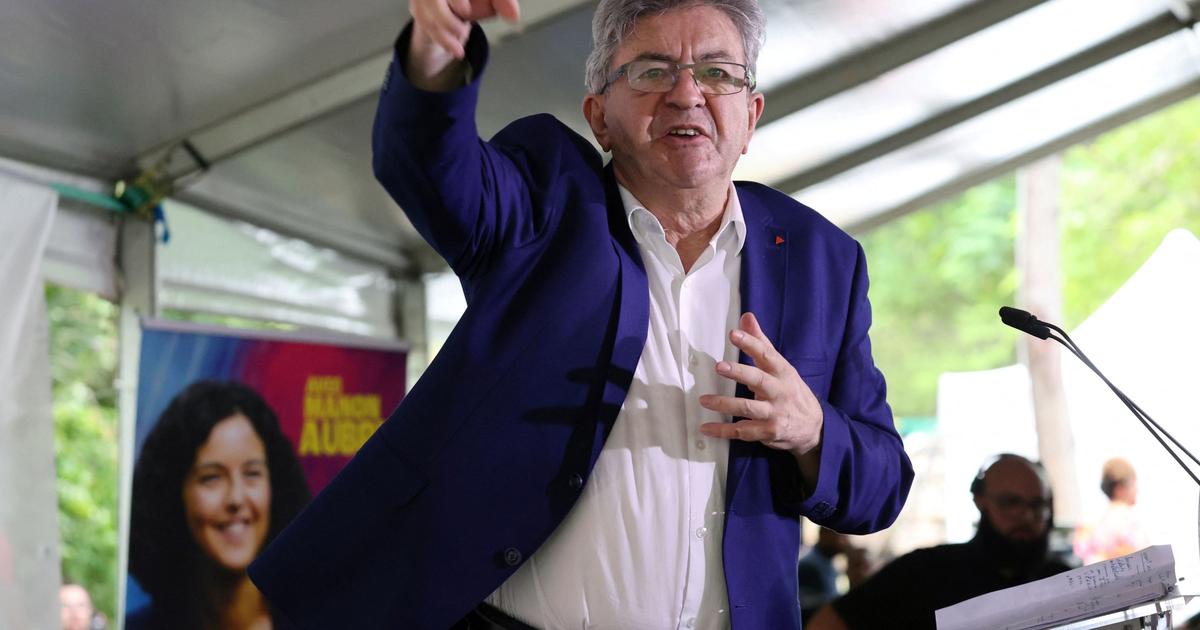Meritocracy still counts in France, also in politics.
The idea that hard work and perseverance pay off is a hard truth to refute in the campaign for the presidential elections on April 10 and 24.
Take the case of Marine Le Pen, leader of the far right and a candidate for the third time: after her career has been repeatedly terminated, here she is, in a solid second position in the polls for the first round this Sunday and with chances of challenging President Emmanuel Macron for victory in the second round two weeks later.
The other case must be found at the other end of the board: Jean-Luc Mélenchon, after five years of crossing the desert in which his political ambitions seemed to collapse, is back in the center of the arena.
With less than a week to go until the first round, Mélenchon (Tangier, 70 years old) does not stop growing.
His expected vote is around 15%, in third position, behind Le Pen and Macron.
Mélenchon, a presidential candidate for the third time, enjoys what French politicians and pundits call a "dynamic."
He has established himself as the first on the left, ahead of the two moderates, the environmentalist Yannick Jadot and the socialist Anne Hidalgo.
Both do not tire of recalling Mélenchon's past complacency with Vladimir Putin's Russia or the risks that his anti-Atlantic or Eurosceptic positions imply for France.
They also accuse him, from the left, of "Islamo-leftism": a proximity that these critics deem excessive with those who, in the name of defending minorities, defend the use of the Islamic veil or denounce systemic Islamophobia in France.
Mélenchon seems immune to attacks and is already dreaming of qualifying for the second round, to which the two most voted pass: in 2017 he was very close, with 19.6%;
now he thinks his time might have come.
The veteran politician, who was a socialist minister with the Lionel Jospin government before refounding the radical left, is reaping the fruits of years of work.
He has used them to prepare the project and weave alliances.
And these days he is confirmed as a political animal that thrives on the campaign trail.
With a handle on classic oratory and revolutionary and literary references, he galvanizes his faithful, who revere him as a providential leader.
At the same time, he benefits from the helpful vote.
The argument may appeal even to those left-leaning voters who chafe at his explosive and polarizing personality, but who think he's the only chance of having a leftist in the runoff.
"Mélenchon has managed to impose a leadership and this makes his victory possible," says Samuel Grzybowski, one of the founders of the so-called Popular Primary, the ultimately failed initiative to elect a candidate through an internet consultation. candidate from the entire left.
"It is possible that he will go to the second round," he believes.
"Many people say in the polls that they will vote for Hidalgo or Jadot, but when it comes to going to the polls they will prefer the useful vote, because Jean-Luc Mélenchon is in a position to qualify."
Grzybowski then alludes to the 2002 presidential elections, when the ultra leader Jean-Marie Le Pen, Marine's father, gave the surprise and reached the second round.
"I think that Mélenchon can do a 2002 in reverse: that is, be the surprise that comes from the radical left," he says.
And once in the second round?
“A Mélenchon-Macron second round”, he replies, “is something totally unprecedented: nobody knows what it will be like, it could change the rules of the game.
It can awaken sleeping strata of society, especially among abstentionists.
It can make a part of the extreme right doubt, which would recognize in Mélenchon an anti-system and anti-capitalist character”.
The latest Ifop poll indicates that, in a second round between Macron and Mélenchon, the current president would defeat the leftist candidate with 60% of the vote against 40%.
But qualifying for the second round would already be a success for him.
The radical left would never have gone so far.
It would mean that the alternation in France to the moderate forces is no longer the extreme right.
For now, it is a hypothesis: five years ago the populist candidate also came back in the final stretch and stayed at the gates of the second round.
Meanwhile, Mélenchon is touring France with massive rallies like the one last Sunday in Toulouse, a symbolic city of the left, in the land of Jean Jaurès, founder of French socialism, and the host country of the Spanish Republicans exiled after the Civil War.
The leader of the Popular Union – the name of his candidacy – ran as the alternative to the “class contempt” that, according to him, represents the centrist Macron, and the “racial contempt” that he attributes to Le Pen or to the other candidate ultra, Eric Zemmour.
In Toulouse, he exhibited an oratory between epic and lyrical that recalls the tribunes of the 19th century, and that takes him in a few minutes to formulate concrete proposals such as the approval of a new Constitution and the foundation of the VI Republic, to talk about pollution sound and light with the following words: “Everything is political!
The night.
The silence.
The light".
irreconcilable lefts
For the moderate left, Jean-Luc Mélenchon poses an almost philosophical problem, what former Prime Minister Manuel Valls called "the two irreconcilable lefts."
Some, in this field, feel closer to the centrism of Emmanuel Macron than to the populism of the left, of a candidate who until recently considered the word "left" obsolete.
"You have to leave it fallow," he said in an interview with EL PAÍS in 2019. "I'm talking about the word, not the idea. I'm a man of the left. I've spent my life on the left. I'm not going to change now. But no one understands the word anymore,” he said.
Mélenchon's explosive character is another of his weak points.
The most complicated moment of the last five years was for him the trial for which in 2019 he ended up sentenced to three months in prison and a fine of 8,000 euros for rebellion and intimidation of public authority.
In October 2018, during a search of the headquarters of his party, he confronted the police officers and the prosecutor and yelled at them: "I am the Republic!"
He didn't have to go to prison, but the scene and the trial dented his image.
Another criticism, from the left and from Macronism, is that, in the second round of the 2017 presidential elections, Mélenchon did not explicitly ask for the vote for Macron, who was facing Marine Le Pen.
His slogan to voters was: "Not one vote for the extreme right."
But no: "Vote Macron."
Now it has been indicated that, if the Macron-Le Pen final is repeated, he will open a consultation among the 310,000 people who have registered as his supporters on the internet.
"On the same night as the first round we will ask them what we do in the second, but it will be easy because I have a good chance of qualifying," he told the newspaper
Le Télegramme
.
Follow all the international information on
and
, or in
our weekly newsletter
.

/cloudfront-eu-central-1.images.arcpublishing.com/prisa/HPA2HWWFHEPUVKZMDFVWIU2CVI.jpg)










/cloudfront-eu-central-1.images.arcpublishing.com/prisa/KMEYMJKESBAZBE4MRBAM4TGHIQ.jpg)


